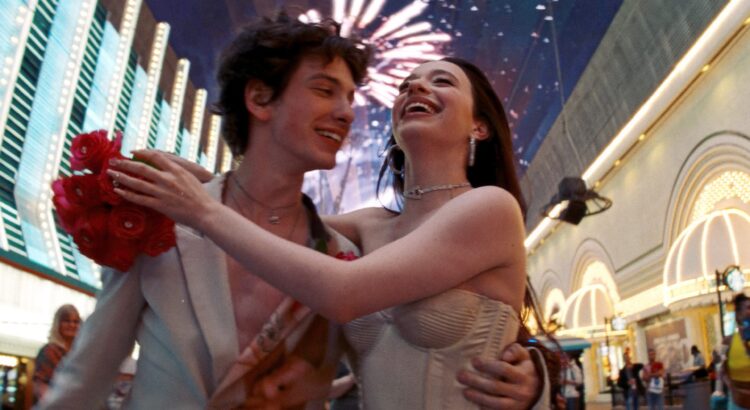Yet another masterpiece from director Sean Baker. “Anora” is possibly the movie of the year, winning the prestigious Palme d’Or at the Cannes Film Festival last May. The film manages to be wildly entertaining and heartbreakingly tender, fusing together comedy and tragedy in a sincere, never tacky, plot. Baker has added a crowning jewel to his already impressive list of achievements – his movies, like “Tangerine,” “Red Rocket,” and “The Florida Project,” are all superb depictions of people living life on the edge.
Anora (played by the excellent Mikey Madison) is a sex worker dancing in an upscale Manhattan club. She’s bratty and charming and sexy; the golden strands woven into her hair, her big brown eyes and pouty lips, and a thick Brooklyn accent seduce both clientele and audience. We might be tempted to make assumptions about this street-smart stripper, but she’s unfailingly competent at her job, wooing the helpless men around her with a sharp confidence and glamour, and even pulling out an accented Russian upon request.
Yet Ani – as she prefers to be called – makes a cardinal mistake: she falls in love at the job. The object of her mascaraed eyes is Ivan (played by the up-and-coming Mark Eydelshteyn), who woos Ani with an ADHD, marijuana-fueled manic appeal and a ready checkbook. The relationship is initially transactional but quickly morphs into genuine affection. The trouble is that Ivan’s sexual adventures are paid for by his father, a wealthy Russian oligarch, who will surely not take kindly to his son’s gallivanting with an American stripper.
Indeed – as anybody but Ani and Ivan could have foreseen – the relationship does not have a happy ending. I’ll spare any spoilers, but let’s just say that there is a scene where Ivan, pulling up his pants with one hand, sprints away from his own mansion and into the city, leaving behind two hired thugs and a weeping, half-naked Ani in his wake. This marks the end of the first act of the film, and it’s only downhill from here.
It would be easy to divide the characters of “Anora” into two categories. The bourgeoisie and the plebeians. The upper class and the working class. The rich kids and their imprisoned servants. The buyers and the sellers. Baker avoids such cliches. Ani is no damsel in distress. She is unfailingly self-sufficient, brash and confident, completely sure of her own worth. But even the toughest Brooklyn girl has a breaking point, as one of the aforementioned hired thugs, Igor (played by a silent-but-strong Yura Borisov), empathetically foresees with a knowing eye. I say “empathetically” here because Igor and Ani are two sides of the same coin. Two young people, essentially enslaved by a spoiled brat, competently but dutifully making their way through an uncaring city.
In a way, Ani is much like the impoverished kids playing make-believe in the Orlando motels that Baker depicted in “The Florida Project.” She has learned how to take care of herself, but yearns for love. She is equal parts brazen and naive. She and Ivan live in the same city, but in completely different worlds. And as she soon finds out, her dreams are pure fantasy.


